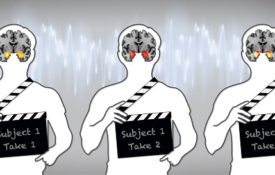-
Feeling Upset? Try This Special Writing Technique
After his father was rushed to the hospital with gastrointestinal bleeding, Yanatha Desouvre began to panic. So he did the one thing he knew would calm himself: He wrote. “I’m so scared,” Mr. Desouvre started. “I don’t know what I’ll do if I lose my dad.” In the next few weeks, Mr. Desouvre filled several notebooks, writing about his worry as well as his happy memories—the jokes he’d shared with his dad, the basketball games they’d watched, the time they put up hurricane shutters together, then cooled down with ice cream. Sometimes he cried as he wrote. Often he laughed. “Writing allowed me to face my fear,” says Mr.
-

Policing and Law Enforcement: Further Considerations from Psychological Science
A review of some research on police and stereotyping, police officers’ aggressiveness, and the impact of psychological science on policing in the United States. Visit Page
-

National Institute of Mental Health Unveils New Strategic Plan
The National Institute of Mental Health (NIMH), one of the largest funders of psychological science research at the National Institutes of Health, has unveiled a new strategic plan that outlines the goals and objectives that the institute will follow in its funding decisions for research over the next 5 years. Visit Page
-

Antonucci to Deliver NIH Lecture June 8th
The Matilda White Riley Behavioral and Social Sciences Honors program recognizes the work of researchers who have strengthened the role of behavioral and social sciences at NIH and for the broader scientific community. Visit Page
-

Scanning the Brain to Predict Behavior, a Daunting ‘Task’ for MRI
New research indicates that task-fMRI lacks the reliability to predict individual behavior or how a person might respond to mental-health therapies. [June 3, 2020] Visit Page
-
How to Talk to Your Children About Protests and Racism
As cities and social media explode with anger over the killing of yet another black man at the hands of police, worried parents struggle with how to protect their children from seeing the worst of the violence while simultaneously explaining the ravages of racism. It couldn't have come at a worse time. Sheltering at home for months to avoid the deadly coronavirus, many parents stressed by juggling work and child care from home had eased their restrictions on screen time for their children. Now it's even more likely that kids might find the video of George Floyd, an unarmed and handcuffed black man in Minneapolis, gasping for breath as a white police officer pressed a knee into his neck.

